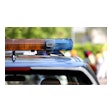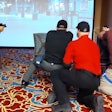Police officers are tasked with being true “jacks of all trades.” One of the biggest drawbacks to this designation is the amount of gear and paperwork officers are required to carry out into the field with them. It’s like having your entire office in your car and on your belt! Maintaining these items is one of the most commonly overlooked, but most important, aspects of our job.
Here’s a quick list of some of the most commonly overlooked maintenance tips in our profession. Although they may be forgotten from time to time, these are among the most important pieces of gear you’ll need to ensure you enjoy a nice, long retirement after your years of service.
Your Duty Weapon
When was the last time you cleaned your weapon? For many officers, that is not their favorite question to answer. Our sidearms become just another piece of the uniform we put on every day. Even in busy departments where officers draw their weapon a couple times a week, they still rarely clean it and check to ensure it’s working properly. Although you may become accustomed to carrying it like any other gadget on your duty belt, this one will be the only thing you care about in the rare occasion that you really need it.
If you don’t know how to disassemble your weapon, take it to your department armorer or a buddy who has the know-how. Have him or her show you the basic techniques and practice them. Most common duty weapons are amazingly easy to strip down for a basic cleaning. We’re not talking about a complete breakdown here, just a basic disassembly to get at those hard-to-reach places with a brush. Buy yourself the basic cleaning supplies and clean and inspect your weapon every few months. This will ensure it will work properly…if you ever need it to.
Your Shooting Skills
Now that you have a nice clean firearm and know it’s in peak condition, let’s move on to an equally important area: your skill with that firearm. When’s the last time you qualified at your range? Better yet, when’s the last time you fired your weapon? Although you may have been a perfect shot on qualification day, time has a funny way of stripping those titles quickly.
Be sure to get out to the range and get proficient with your duty weapon. This doesn’t take a long time; a couple times a year will keep you shooting straight. It may take some time out of your busy schedule, but at any moment it can suddenly become the most important skill you possess.
Your Duty Gear
Much like your sidearm, your duty belt becomes an extension of your uniform. It goes on with the uniform at the beginning of your shift, and comes off with it at the end of the day. Some of the components on the belt are used every day. Others haven’t seen action in a long time.
Take some time to take everything off your belt and make sure it’s still in working and top condition. Check the batteries on your flashlight (especially those working dayshift) and any other electronic gadgets you may carry. Check your “expandable” baton to make sure it still is. If you carry two sets of handcuffs, make sure the second or little-used pair isn’t rusted or stuck. Also, give your leather gear some time and attention to prevent it from cracking and breaking down in the future. Try to keep all the components of your belt from squeaking and announcing your approach a mile out. A little TLC goes a long way.
Your Vehicle
Hey, wait a minute! Your city and department care for your patrol cars, right? Sure they do, but they can’t prevent the officer before you from leaving you with no gas and a flat tire. We all learned to take a walk around our vehicles and inspect them during the Field Training Program, but how many of us still do this?
Take the time to at least check your gas and tires. Running out of gas en route to a hot call is not a good feeling. Keep your fuel level up to par, and check your car before your shift. That way, you’ll stay in the game when you need to.
Your Forms and Paperwork
Ever pull over a speeder only to find you’re out of tickets? It may be his lucky day, but not yours. Tickets are one thing, but not having critical forms handy when you need them can be embarrassing and costly. It takes only a minute to flip through your folder or posse box to make sure all your forms are stocked. Police work requires many of us to carry a virtual office around with us, so make sure yours is fully loaded and ready for any situation.
Maintaining your duty equipment and forms may not be the most exciting thing to do, but it is one of the most important. Don’t be caught unprepared, especially when it comes to your firearm and shooting skills. Take the time to make sure you have everything in order and properly maintained before you start your shift. It’ll be one less thing to worry about when you hit the streets.
















